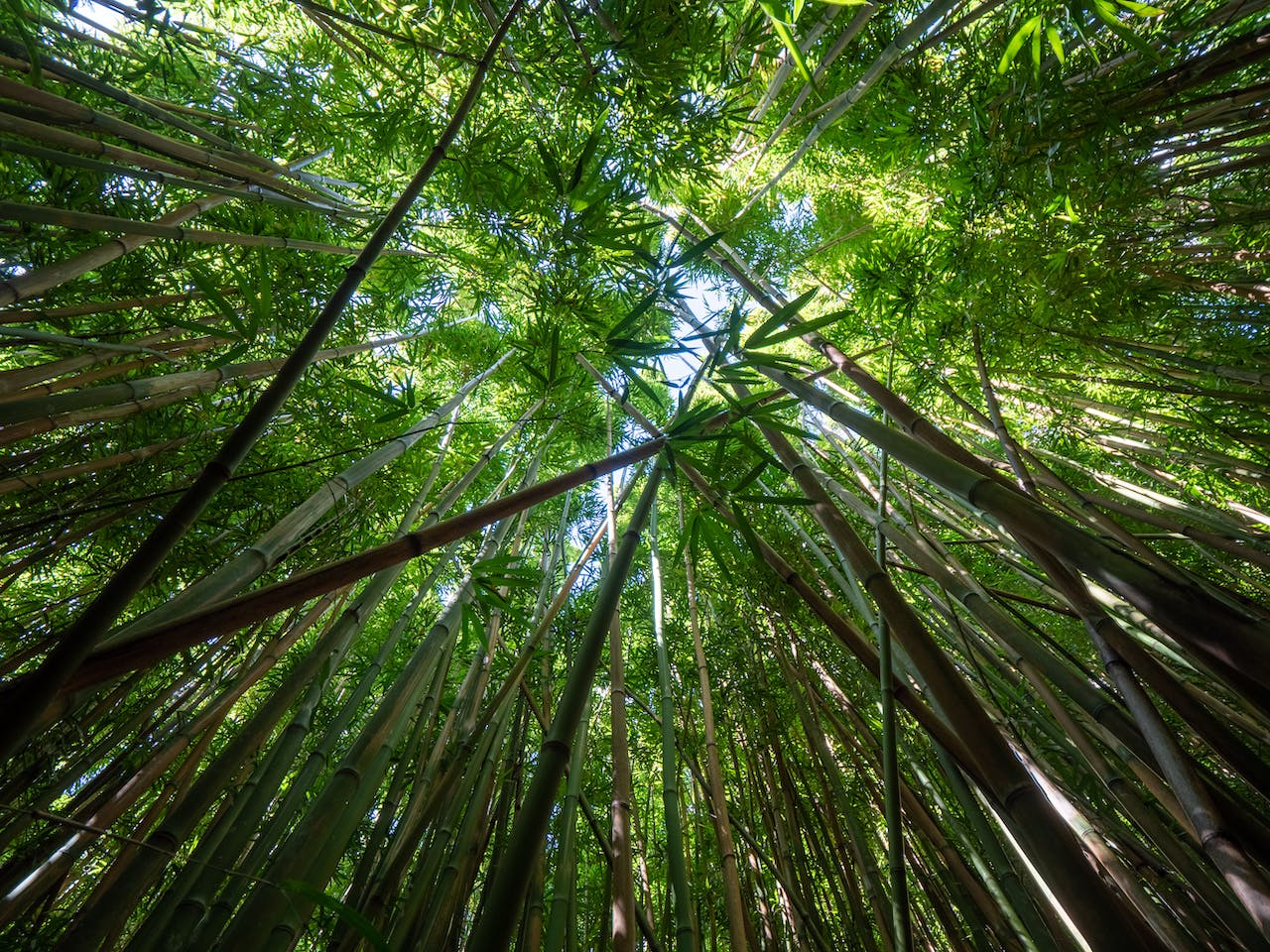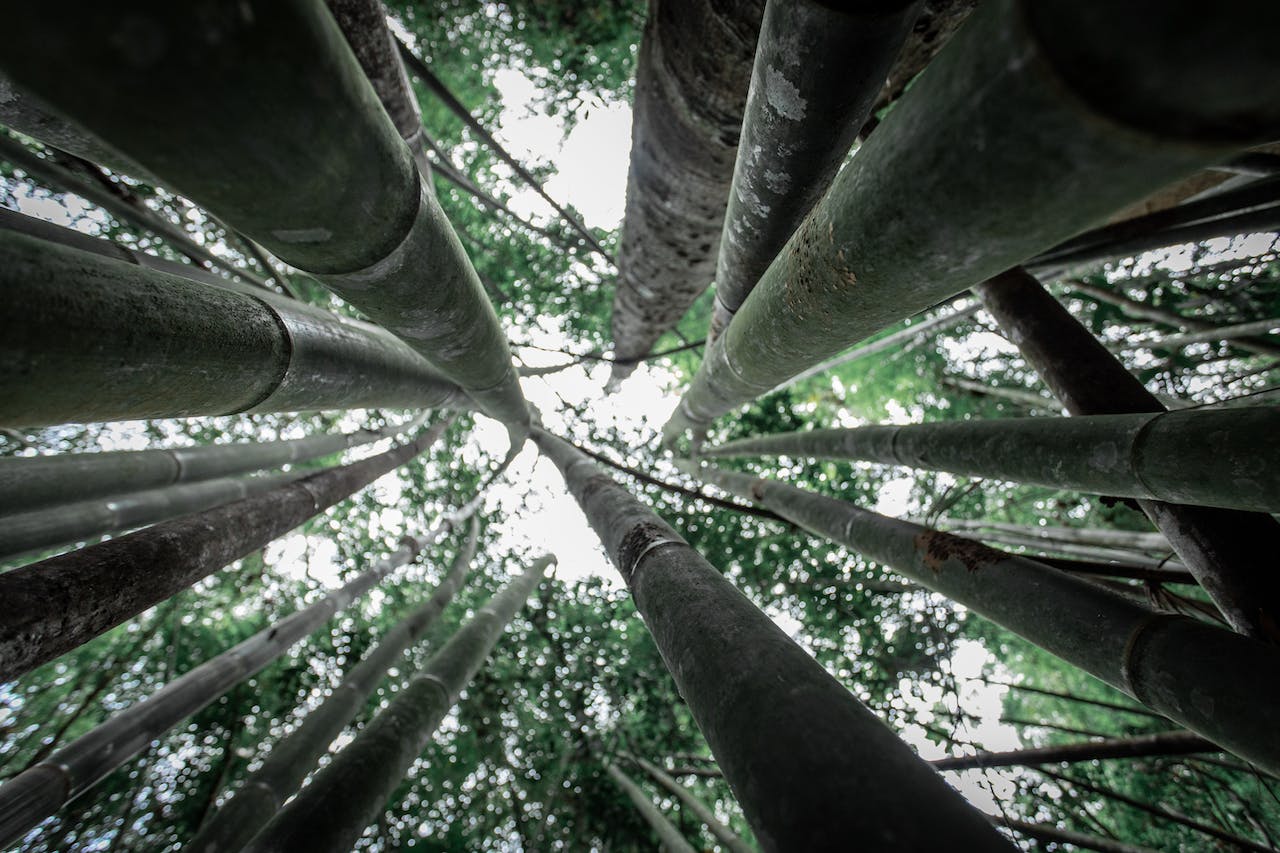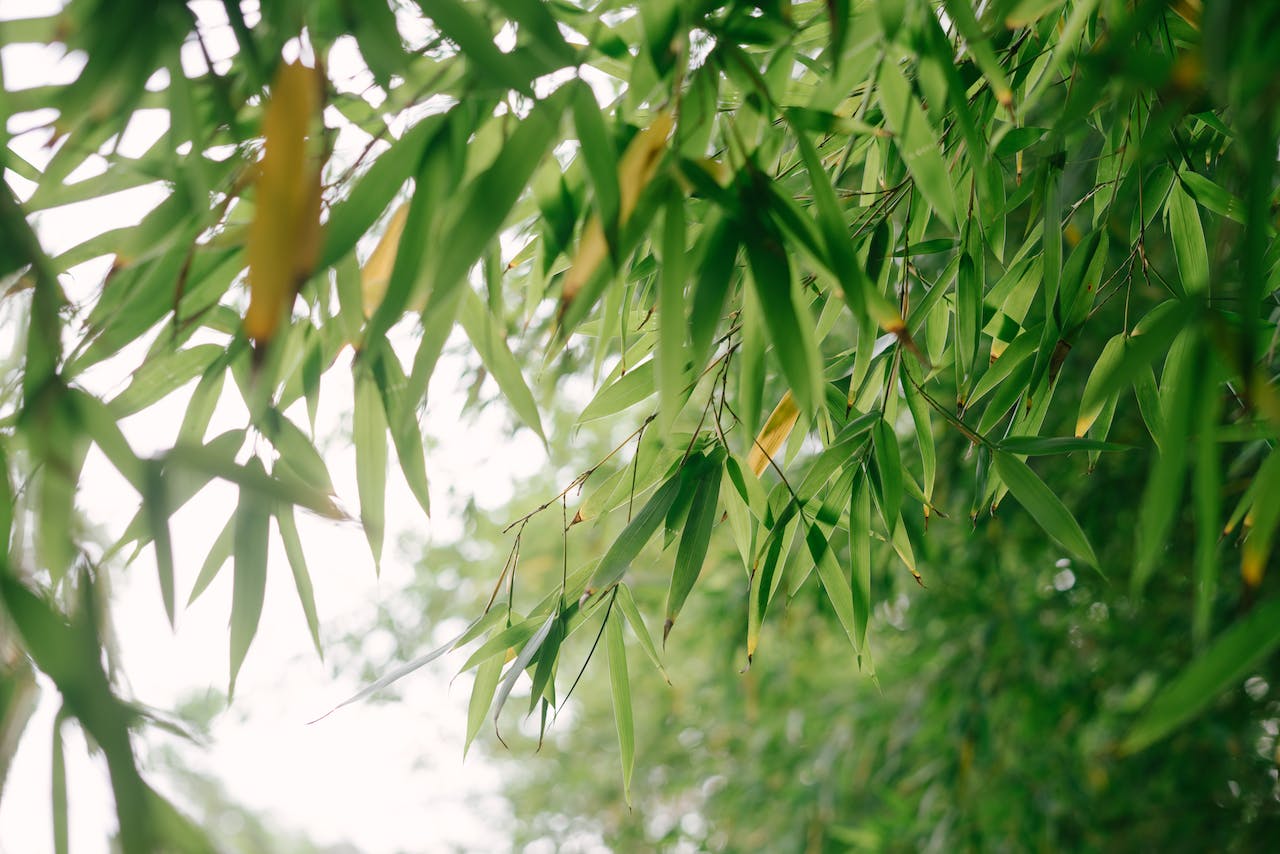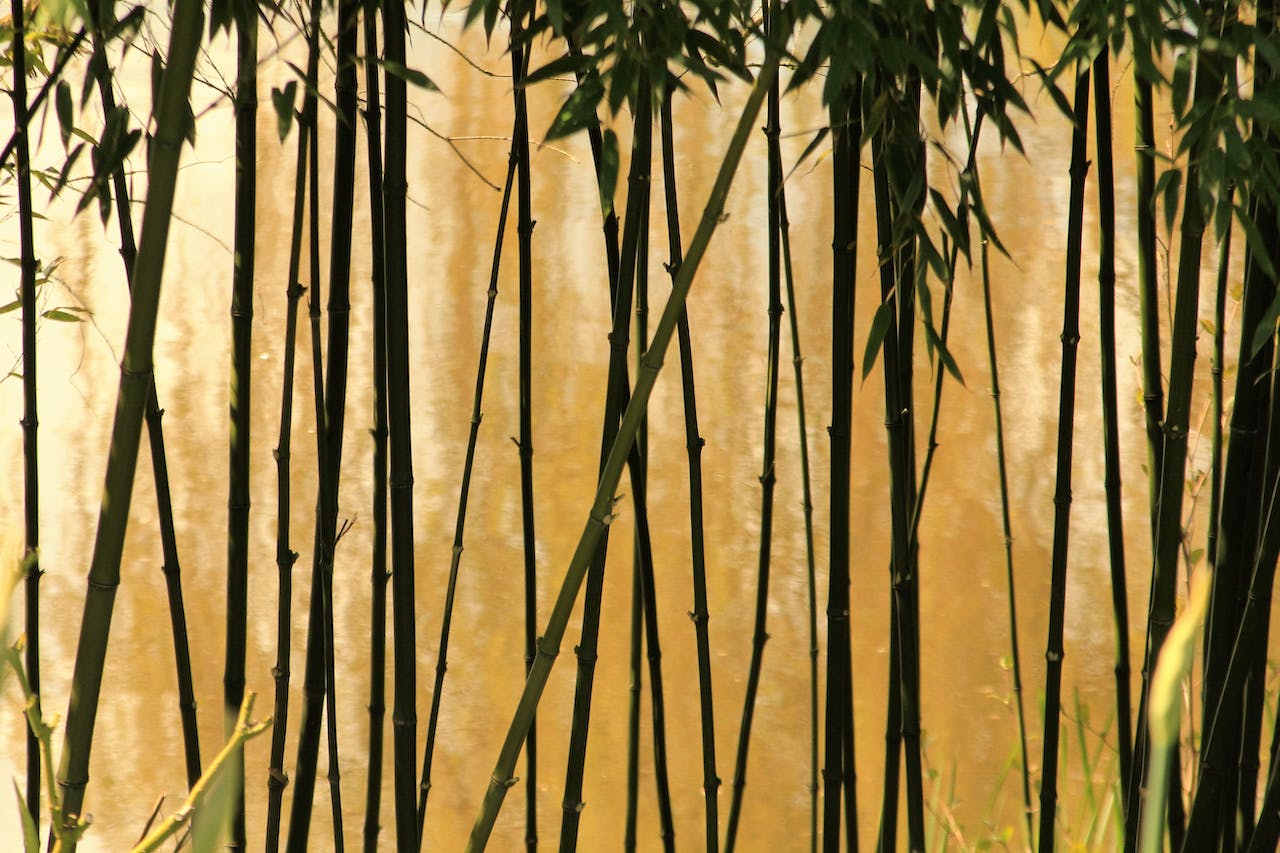Bamboo Leaf Tea - Ancient, Traditional, And Modern Benefits
Packed with antioxidants and nutrients, bamboo leaf tea, it is celebrated for its potential to support overall well-being. Whether enjoyed hot or cold, bamboo leaf tea, it provides a soothing and invigorating experience.
Author:Suleman ShahReviewer:Han JuJan 19, 2024746 Shares62.1K Views

Bamboo leaf tea, a beverage less known but gaining popularity, offers a unique blend of flavor and potential healthbenefits. It is harvested from the leaves of the bamboo plant; this tea has a rich historydeeply rooted in traditional medicine.
In this article, we will explore the origins, production methods, nutritional value, and potential health benefits of Bamboo leaf tea.
Ancient Roots Of Bamboo Leaf Tea
Bamboo leaf tea, a seemingly humble beverage, carries within its leaves a rich tapestry of historical significance that stretches back centuries. Its roots are deeply embedded in the annals of traditional medicine, cultural rituals, and the everyday lives of communities across Asia.
Ancient Chinese Medicine - The Birthplace Of Bamboo Leaf Tea
The origins of Bamboo leaf tea can be traced back to ancient Chinese medicine, where bamboo held a revered status. In traditional Chinese medicinal texts, bamboo leaves were documented for their potential healing properties.
These leaves were believed to possess cooling effects, making them valuable in balancing the body's energy and addressing ailments.
Tea In Ancient Rituals - A Connection With Nature
As tea culture flourished in ancient China, Bamboo leaf tea found its way into various rituals and ceremonies. The leaves, appreciated for their unique flavor and purported health benefits, became a symbol of purity and connection with nature.
The infusion of bamboo leaves into these rituals showcased the intertwining of traditional medicine and cultural practices.
Across Asian Cultures - Bamboo Leaf Tea's Migration
The popularity of Bamboo leaf tea transcended the borders of China, spreading its influence across various Asian cultures. In Japan, the practice of incorporating bamboo leaves into tea ceremonies has become a tradition that endures to this day.
The tea's presence in different societies reflected its adaptability and the universality of the appreciation for its taste and potential health benefits.
Rediscovery In Modern Times - Bamboo Leaf Tea's Resurgence
While bamboo leaf tea has been an integral part of historical traditions, it has experienced a renaissance in modern times.
The resurgence of interest in traditional and natural remedies, coupled with a growing awareness of sustainable practices, brought Bamboo leaf tea back into the spotlight. This revival signifies a return to ancient wisdom in the pursuit of wellness.
Medicinal Heritage - Bamboo Leaf Tea In Folk Remedies
Bamboo leaf tea wasn't merely a beverage; it was a staple in folk remedies passed down through generations. Communities relied on the tea to alleviate various ailments, from digestive issues to skin conditions.
This medicinal heritage, rooted in the wisdom of the past, contributed to the enduring popularity of Bamboo leaf tea as more than just a refreshing drink.
Cultural Symbolism - Bamboo As A Metaphor For Resilience
In many cultures, bamboo is more than just a source of leaves; it's a symbol of resilience and strength. The historical significance of Bamboo leaf tea extends beyond its medicinal uses, becoming a metaphor for endurance and adaptability.
The plant's ability to bend without breaking mirrors the adaptability of Bamboo leaf tea in seamlessly blending into different cultural practices.
Global Integration - Bamboo Leaf Tea In The Contemporary World
In the contemporary era, Bamboo leaf tea has transcended its cultural boundaries and made its way into global markets.
As a result, its historical significance has evolved to encompass a broader narrative—one that speaks not only to ancient traditions but also to the interconnectedness of a globalized world that appreciates diverse cultural influences.
Why Bamboo Leaf Tea?
In a world increasingly conscious of health, wellness, and the environment, bamboo leaf tea emerges as a remarkable beverage choice. This tea, derived from the leaves of the bamboo plant, is not just a refreshing and subtle drink but also a powerhouse of benefits, both for personal health and environmental sustainability.
To understand why bamboo leaf tea is gaining popularity, it's essential to delve into its unique properties, health benefits, and ecological advantages.
The Nutritional Profile Of Bamboo Leaf Tea
Bamboo leaf tea is a treasure trove of nutrients. It is particularly rich in silica, an essential mineral known for its incredible benefits for hair, skin, and nails. Silica plays a crucial role in the formation of collagen, which is vital for maintaining skin elasticity and a youthful appearance.
Moreover, silica aids in strengthening bones and improving joint health, making bamboo leaf tea a great beverage for aging populations or those concerned about osteoporosis.
Apart from silica, bamboo leaves contain antioxidants, which are crucial in fighting free radicals in the body. These free radicals are responsible for cellular damage and have been linked to various chronic diseases, including cancer and heart disease.
The antioxidants in bamboo leaf tea help neutralize these harmful molecules, thereby promoting overall health.
Digestive Health And Weight Loss
Bamboo leaf tea is also known for its benefits in aiding digestion and potentially assisting in weight loss. The tea is light and soothing, making it an excellent choice for those with sensitive stomachs or digestive issues.
Additionally, it is believed that tea can boost metabolism, which can aid in weight loss and management. The mild diuretic properties of bamboo leaf tea also help in detoxifying the body and reducing bloating.
Soothing And Relaxing Properties
In today's fast-paced world, stress and anxietyare common issues. Bamboo leaf tea can be a natural remedy for these problems. The tea has a calming effect on the mind and body, making it an excellent choice for relaxation and stress relief.
Drinking bamboo leaf tea can be a part of a nightly routine to help unwind and promote better sleep.
Environmental Sustainability
One of the most compelling reasons to choose bamboo leaf tea is its environmental sustainability. Bamboo is one of the fastest-growing plants on Earth, making it a highly renewable resource.
It requires no pesticides or chemicals to thrive, and its cultivation has minimal impact on the environment. By choosing bamboo leaf tea, consumers are making a choice that supports sustainable agriculture.
Cultivation And Harvesting Benefits
The cultivation of bamboo for tea has several advantages over traditional tea plants. Bamboo can grow in a variety of climates and soil types, making it a versatile crop.
It also helps in soil stabilization and prevents erosion due to its extensive root system. The harvesting of bamboo leaves for tea does not harm the plant, allowing for continuous growth and a sustainable harvesting cycle.
A Versatile Beverage
Bamboo leaf tea is incredibly versatile. It has a subtle, slightly sweet, and grassy flavor, making it enjoyable on its own or as a base for other flavors.
It can be blended with other herbs, fruits, or teas to create unique and delicious combinations. This versatility makes it appealing to a wide range of palates.
Supporting Traditional Practices And Communities
In many parts of the world, especially in Asia, bamboo has been used for centuries for various purposes, including medicinal uses.
By choosing bamboo leaf tea, consumers are supporting these traditional practices and the communities that maintain them. This not only helps preserve cultural heritage but also provides economic opportunities for these communities.
A Natural Source Of Hydration
Bamboo-leaf tea is an excellent source of hydration. Unlike caffeinated teas and coffee, which can have diuretic effects, bamboo leaf tea hydrates without depleting the body of essential water.
This makes it an excellent choice for people looking to increase their fluid intake without the side effects of caffeine.
Skin And Hair Health
The high silica content in bamboo leaf tea has specific benefits for skin and hair health. Regular consumption of the tea can lead to stronger, shinier hair and improved skin texture.
Silica’s role in collagen formation helps not only maintain skin elasticity but also heal and repair skin damage.
Aiding In Blood Sugar Regulation
Preliminary studies suggest that bamboo leaf tea may have benefits in regulating blood sugar levels, making it a potentially beneficial drink for those with diabetesor at risk of the disease. However, more research is needed in this area to understand its effects fully.
Bamboo Leaf Tea's Role In Traditions And Ceremonies
Bamboo leaf tea is not merely a beverage; it's a thread woven into the intricate fabric of cultural traditions and ceremonies across diverse societies. Its unique flavor and historical significance make it a natural companion to rituals that celebrate connections with nature, mark significant events, and honor the passage of time.
Chinese Tea Ceremonies
In China, the birthplace of Bamboo leaf tea, the beverage finds its place in the revered tradition of tea ceremonies. These ceremonies are intricate dances of elegance and harmony, where the preparation and consumption of tea are elevated to an art form.
Bamboo leaf tea, with its subtle sweetness and cultural significance, becomes a symbol of purity and tranquility in these rituals. The act of serving and sharing Bamboo leaf tea is a gesture of hospitality and respect.
Japanese Tea Rituals
In Japan, Bamboo leaf tea integrates seamlessly into traditional tea ceremonies, such as the Chanoyu or the Way of Tea. These ceremonies emphasize the spiritual connection with nature and the appreciation of the fleeting beauty of life.
Bamboo-leaf tea, with its ties to nature, becomes a symbolic bridge between the participants and the environment. Its presence in these rituals symbolizes the harmony between humanity and the natural world.
Celebratory Occasions
Bamboo leaf tea often takes center stage during celebratory occasions. Whether it's weddings, birthdays, or festivals, tea becomes a symbol of joy and festivity.
The act of sharing Bamboo leaf tea during these events is a gesture of warmth and camaraderie, bringing people together to celebrate the joyous moments in life.
Rituals Of Remembrance
In many cultures, Bamboo leaf tea is an integral part of rituals honoring ancestors and preserving traditions. During ceremonies of remembrance and reflection, the tea serves as a conduit between the living and the departed.
The act of brewing and serving Bamboo leaf tea becomes a ritualistic expression of gratitude and a way to connect with the wisdom of those who came before.
Daily Life Practices
Beyond grand ceremonies, Bamboo leaf tea integrates into daily life practices, becoming a ceremonial affair. The act of brewing and enjoying the tea becomes a mindful pause, a moment of reflection amidst the hustle and bustle of modern life.
The simplicity of the ritual adds a touch of mindfulness to the routine, emphasizing the importance of savoring each moment.
Cultural Symbolism
Incorporating Bamboo leaf tea into cultural rituals goes beyond its flavor and historical significance—it taps into the symbolism of bamboo itself. Bamboo, known for its resilience and flexibility, becomes a metaphor for the strength and adaptability required in life.
This cultural symbolism adds a layer of depth to the rituals, making Bamboo leaf tea not just a beverage but a carrier of profound meaning.
Bamboo As A Renewable Resource In Tea Production
In a world increasingly conscious of environmental impact, the choice of materials in various industries plays a pivotal role in shaping sustainable practices.
Bamboo, with its rapid growth, versatility, and minimal environmental footprint, emerges as a champion in promoting green sustainability, particularly in the production of Bamboo leaf tea.
Rapid Growth
Bamboo is renowned for its rapid growth, often reaching maturity in a fraction of the time compared to traditional wood sources. This characteristic makes bamboo an exceptionally sustainable resource.
In the context of Bamboo leaf tea production, the bamboo plant can be harvested for its leaves without causing long-term harm to the plant or the surrounding environment.
Minimal Resource Requirements
Compared to other materials used in the production of tea, bamboo requires minimal resources. Bamboo groves thrive with minimal water, making them resilient in various climates.
Additionally, bamboo cultivation doesn't necessitate the use of harmful pesticides or fertilizers, contributing to a more eco-friendly and sustainable agricultural practice.
Carbon Sequestration
Bamboo plays a crucial role in carbon sequestration, absorbing more carbon dioxide and releasing more oxygen into the atmosphere than many other plants.
As a fast-growing grass, bamboo aids in mitigating the effects of climate changeby capturing carbon and helping to maintain a healthy balance in the environment.
Biodiversity Preservation
Bamboo groves create unique ecosystems that support biodiversity. The dense foliage provides habitats for various species, promoting a healthy balance in the local environment.
By choosing Bamboo leaf tea, consumers indirectly contribute to the preservation of these ecosystems, fostering a harmonious relationship between agriculture and nature.
Reduced Environmental Impact
Bamboo is naturally biodegradable, and its utilization in the production of Bamboo leaf tea minimizes the environmental impact associated with tea packaging and production waste.
As a renewable resource, bamboo packaging decomposes more efficiently than traditional materials, reducing the overall carbon footprint of the tea production process.
Versatility
Bamboo's versatility extends beyond its role in tea production. The plant can be used for a myriad of purposes, from construction materials to textiles. This multi-functionality enhances its sustainability, as the entire bamboo plant can be utilized, leaving little to no waste.
The adaptability of bamboo makes it a valuable asset in promoting sustainable practices across various industries.
Cultivation Practices
Bamboo cultivation often employs sustainable practices that prioritize the health of the environment. Unlike deforestation for traditional wood sources, bamboo harvesting allows for the continual growth of the plant, promoting a balanced coexistence between agriculture and nature.
This symbiotic relationship reinforces the idea that Bamboo leaf tea is not just a product; it's a representation of a sustainable and respectful interaction with the environment.
Education And Awareness
The use of bamboo in tea production is also an opportunity to educate consumers about sustainable choices. As Bamboo leaf tea gains popularity, it serves as a tangible example of how everyday decisions, like choosing a beverage, can align with broader environmental conservation efforts.
This ripple effect contributes to a growing awareness of the importance of sustainable practices in consumer choices.
How To Make Bamboo Leaf Tea?
Preparing bamboo leaf tea is a straightforward and enjoyable process. This tea can be made in bulk and conveniently stored in a clean glass container in your refrigerator. Enjoy it as a refreshing iced tea over the next 2-3 days.
Here's how you can brew bamboo leaf tea:
- Boil Water -Start by boiling the amount of water you need, depending on how many cups of tea you wish to prepare.
- Measure the Tea -If you're using a bamboo leaf tea bag, have it ready. For loose-leaf tea, measure out approximately one teaspoon per cup.
- Steep the Tea -Once your water is boiling, add the loose leaves directly to the pot. Allow them to steep for about 4-5 minutes. Remember to use a bit more water than the exact cup measurement, as the leaves will absorb some. If you're using a tea bag, place it in your cup and pour the hot water over it, letting it steep for the same duration.
- Flavor Enhancements -For an extra touch of flavor and sweetness, consider adding a few drops of fresh lemon juice and a bit of honey to your tea.
- Enjoy Your Beverage -Once steeped, your bamboo leaf tea is ready to be enjoyed. Savor this healthful drink!
This simple method ensures you get a delightful and healthful cup of bamboo leaf tea every time, with the option of enjoying it hot or as a chilled beverage.
Bamboo Leaf Tea Benefits
Bamboo leaf tea benefits, often hailed as a hidden gem among herbal infusions, not only delights the palate with its unique flavor but also offers an array of potential health benefits. From supporting digestion to providing essential nutrients, here's a closer look at the wellness advantages that come with sipping bamboo leaf tea.
Rich In Antioxidants - Shielding The Body From Oxidative Stress
Bamboo-leaf tea is a powerhouse of antioxidants, including flavonoidsand polyphenols. These compounds play a crucial role in neutralizing free radicals and reducing oxidative stress in the body. By doing so, Bamboo leaf tea supports overall cellular health and may contribute to the prevention of chronic diseases.
Digestive Aid - Soothing The Stomach Naturally
For centuries, Bamboo leaf tea has been revered for its digestive benefits. It contains natural compounds that can help soothe the stomach, alleviate indigestion, and promote a healthy digestive system. Regular consumption may contribute to improved gut health and a more comfortable digestive experience.
Weight Management - Assisting In A Healthy Lifestyle
Bamboo-leaf tea is often included in weight management routines. It is low in calories and can be a satisfying alternative to sugary beverages. Additionally, the tea may help boost metabolism, supporting those on a journey to maintain a healthy weight.
Anti-Inflammatory Properties - Easing Aches And Pains
Studies suggest that Bamboo leaf tea possesses anti-inflammatory properties. Regular consumption may contribute to reducing inflammationin the body, providing relief for individuals dealing with inflammatory conditions or discomfort.
Nutrient Boost - A Natural Source Of Vitamins And Minerals
Bamboo-leaf tea isn't just refreshing; it's also a natural source of essential vitamins and minerals. It contains elements like potassium, calcium, and vitamin C, which are vital for bone health, immune function, and overall well-being. Incorporating Bamboo leaf tea into your routine is an easy way to give your body an extra nutrient boost.
Stress Reduction - Calming The Mind And Body
The act of sipping on a warm cup of Bamboo leaf tea can have calming effects on the nervous system. The tea contains L-theanine, an amino acid known for its relaxation-inducing properties. Including Bamboo leaf tea in your daily routine may contribute to stress reduction and a sense of tranquility.
Hydration Support - Quenching Thirst Naturally
Staying hydrated is fundamental to good health, and Bamboo leaf tea can be a flavorful ally in achieving that goal. Its hydrating properties, combined with the absence of caffeine, make it an excellent choice for those looking to increase their fluid intake without the stimulating effects of traditional tea or coffee.
Diabetes Management - Potential Blood Sugar Regulation
Research suggests that Bamboo leaf tea may play a role in blood sugar regulation. Some compounds found in the tea may contribute to improved insulin sensitivity, making it a potential addition to the lifestyle choices for individuals managing diabetes.
Adaptogenic Properties - Enhancing Resilience
Bamboo-leaf tea possesses adaptogenic properties, which may help the body adapt to stressors and maintain balance. This adaptability can contribute to overall resilience, supporting the body in coping with the demands of daily life.
Bamboo Leaf Tea - FAQs
What Is Bamboo Leaf Tea Good For?
Light, tasty Bamboo leaf tea with silica is an excellent beauty supplement. The hair, skin, and nails will appreciate it. Silica supports collagen production, strong nails, hair, and beautiful skin. Each bamboo tea bag may be re-steeped for further pleasure.
Does Bamboo Tea Expire?
Properly kept tea may lose taste and complexity with time, but it seldom becomes unsafe to consume.
When Should I Drink Bamboo Tea?
You may drink our caffeine-free bamboo tea anytime! Combine bamboo tea with beautiful bamboo supplements for the best effects.
Does Bamboo Tea Help Hair Grow?
Higher silica levels make hair shinier and healthier. Bamboo tea drinkers report more incredible hair growth over time. Consistency with bamboo tea improves outcomes.
How Do You Dry Bamboo Leaves?
Bamboo leaf tea making involves these steps: removing petioles from young, fragile bamboo leaves; drying washed and drained bamboo leaves in the sun till 30%-60% moisture is removed; preserving dried bamboo leaves at - 10 °C.
Considering All This
Bamboo-leaf tea transcends its role as a beverage; it is a bridge between tradition and modern wellness. From its historical roots to the eco-friendly cultivation practices, every aspect adds to the allure of this unique tea.
As you savor the subtle flavors and reap the potential health benefits, remember that each cup of Bamboo leaf tea is a journey through time, culture, and nature—a journey worth savoring.
So, the next time you take a sip, appreciate the rich tapestry of Bamboo leaf tea, a tapestry woven with leaves that carry the essence of centuries.

Suleman Shah
Author
Suleman Shah is a researcher and freelance writer. As a researcher, he has worked with MNS University of Agriculture, Multan (Pakistan) and Texas A & M University (USA). He regularly writes science articles and blogs for science news website immersse.com and open access publishers OA Publishing London and Scientific Times. He loves to keep himself updated on scientific developments and convert these developments into everyday language to update the readers about the developments in the scientific era. His primary research focus is Plant sciences, and he contributed to this field by publishing his research in scientific journals and presenting his work at many Conferences.
Shah graduated from the University of Agriculture Faisalabad (Pakistan) and started his professional carrier with Jaffer Agro Services and later with the Agriculture Department of the Government of Pakistan. His research interest compelled and attracted him to proceed with his carrier in Plant sciences research. So, he started his Ph.D. in Soil Science at MNS University of Agriculture Multan (Pakistan). Later, he started working as a visiting scholar with Texas A&M University (USA).
Shah’s experience with big Open Excess publishers like Springers, Frontiers, MDPI, etc., testified to his belief in Open Access as a barrier-removing mechanism between researchers and the readers of their research. Shah believes that Open Access is revolutionizing the publication process and benefitting research in all fields.

Han Ju
Reviewer
Hello! I'm Han Ju, the heart behind World Wide Journals. My life is a unique tapestry woven from the threads of news, spirituality, and science, enriched by melodies from my guitar. Raised amidst tales of the ancient and the arcane, I developed a keen eye for the stories that truly matter. Through my work, I seek to bridge the seen with the unseen, marrying the rigor of science with the depth of spirituality.
Each article at World Wide Journals is a piece of this ongoing quest, blending analysis with personal reflection. Whether exploring quantum frontiers or strumming chords under the stars, my aim is to inspire and provoke thought, inviting you into a world where every discovery is a note in the grand symphony of existence.
Welcome aboard this journey of insight and exploration, where curiosity leads and music guides.
Latest Articles
Popular Articles




